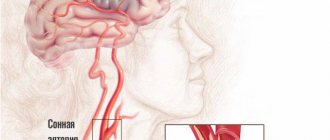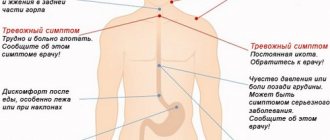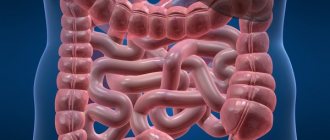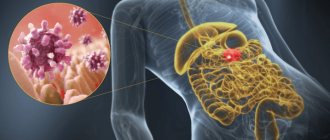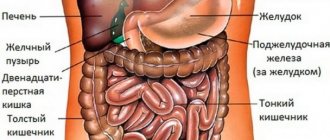What are some causes of indigestion?
The term "indigestion" requires a more precise definition.
For some, this means an unpleasant feeling of fullness in the stomach and perhaps a little nausea. Others use the term to describe abdominal pain with diarrhea, vomiting, or flatulence. Another definition is acid indigestion, which can cause heartburn.
Because an upset stomach can be perceived and described in so many ways, it is difficult to pinpoint all the causes. So, there are many things that can lead to nausea that people may want to know about.
https://youtu.be/1GggZ7E7WKY
What are severe cases of indigestion?
When nausea is accompanied by diarrhea or vomiting, common causes include mild to severe cases of food poisoning and viruses.
If vomiting or diarrhea does not go away within a day or so, and if it is accompanied by a fever, people should see a doctor. In cases of food poisoning, antibiotics may be needed, and dehydration is a problem when diarrhea or vomiting continues. Some people suffer from chronic diarrhea and may need to be investigated if they have conditions such as parasitic infections, spastic colon or irritable bowel syndrome.
What diseases can cause stomach upset?
If a sore stomach is described as severe abdominal pain and possibly nausea, it may indicate a more serious condition.
Some people will feel severe abdominal pain in the midst of a heart attack. What feels like very bad heartburn could also be a heart attack. Other conditions that can cause abdominal pain include mononucleosis, appendicitis, and pancreatitis.
If a person is vomiting blood or passing blood or black blood, this is an issue that deserves a doctor's attention, especially if severe abdominal pain is present.
What is chronic indigestion?
Chronic (ongoing) indigestion can be the result of numerous conditions.
Sometimes people with extreme food allergies such as wheat may suffer from stomach pain every time they consume wheat. Crohn's disease can cause chronic pain, as well as pelvic inflammatory disease and some forms of cancer.
Gastrointestinal reflux disease can create a fairly constant state of heartburn, and people who have ulcers may also feel like their stomach is always in pain.
In what cases should you consult a doctor?
If abdominal pain persists, consult your doctor. There are many ways to determine the causes of indigestion and many treatments that can help people find relief. As mentioned, usually stomach pain, especially after eating a large meal, is simply the result of overeating.
Kefir
Kefir is a drink rich in
probiotics and enzymes that help balance intestinal microflora and cleanse the liver.
Kefir increases hydration and populates your intestines and mucous membranes with a wide range of beneficial microflora. It also contains beneficial yeast that recognizes and inhibits pathogenic yeast in the body (such as Candida) and helps strengthen and cleanse the intestinal lining, making it more resistant to dangerous pathogens such as E. coli, salmonella and parasites.
Kefir also promotes the absorption of nutrients in the intestines and optimizes the effect of certain microelements and vitamins.
Common causes of indigestion in general
Indigestion is often caused by overeating, eating food too quickly, or consuming excess fatty or spicy foods. Certain emotional problems, such as stress or anxiety, can also trigger dyspepsia.
Stomach upset may be especially common among people with the following conditions:
- gastroesophageal reflux disease;
- peptic ulcers;
- abnormality of the pancreas or bile ducts;
- gastritis;
- pancreatitis;
- gallstones;
- stomach cancer;
People taking antibiotics or non-steroidal anti-inflammatory drugs may also be prone to digestive upset.
Natural Remedies for Indigestion:
While research on natural treatments for digestive disorders is limited, alternative medicine practitioners may recommend sipping ginger or peppermint tea to soothe the digestive system after meals.
Very strong flatulence
Research shows that these natural remedies may also relieve indigestion:
#1 Artichoke leaf extract helps with indigestion
A 2004 study of 208 adults with irritable bowel syndrome found that those who took artichoke leaf extract experienced a 41% reduction in dyspepsia symptoms after two months.
#2 Peppermint oil and caraway oil
Several studies have shown that supplements containing a combination of peppermint oil and cumin oil may help reduce the symptoms of dyspepsia.
This formula is believed to relax the abdominal muscles and also help food pass through the stomach faster.
“Healthy” diets may make problems worse
As a society, we are beginning to collectively realize the intricate relationship between nutrition and health. Poor diet can further aggravate digestive problems.
Cold food
Any cold food disrupts digestion to some extent. Our bodies are very warm (36.6 degrees Celsius) and the stomach needs to warm everything we eat to this temperature for optimal digestion.
Cold food puts enormous strain on the system and leads to digestive problems. Traditional Chinese Medicine refers to cold food as a bog, blockage and stagnation.
Excess fluids
Drinking even freshly squeezed juice regularly, for that matter, also introduces excess fluids into our digestive tract. Juices can very quickly unbalance the body. It is stated how much to drink: at least 2 liters per day, but not during meals. Again, balance is key here. Freshly squeezed juice several times a week is usually not a problem as long as your digestion is strong and healthy. But juicing every day for more than a short period of time (like as part of a cleanse that lasts a week or two) is a recipe for digestive problems.
Juicing and cleansing diets make us feel good at first as the body is cleansed and organ function improves.
But the reality is that they create noticeable digestive problems quite quickly because they are typically cold and wet foods.
Raw product
In addition to juice and other cold foods, copious amounts of salad, fruits and other raw foods will not allow the body to digest all the food.
For these reasons, it is not recommended to engage in a strict raw food diet for a long time, although there are, of course, advantages to a raw food diet. As a short-term part for an overall diet including cooked foods, raw food can promote health. But a raw food diet may be the cause of digestive problems. It is not recommended to follow a raw food diet for long, as it almost always worsens the situation.
Alkaline water
Our digestive secretions are quite acidic and when we regularly drink alkaline water or drinks, they neutralize the acidity of the stomach, which finally stops. Alkaline water can be beneficial in moderation if it is natural. All minerals are alkaline, and mixing them with water will make the water alkaline. However, many artificially alkalize water by passing it over metal plates with small electrical charges, which introduce ions as a shortcut to alkalinity. The body, as you can imagine, does not respond well to these types of “processed” waters, and as a result, further causes of digestive problems appear.
Sugar
When you eat sugary foods, the sugar in them enters your bloodstream (quite quickly). The body always maintains a delicate balance in blood sugar levels, and the unexpected influx of highly sweetened foods from eating causes a sharp rise in blood sugar levels. To bring the situation back under control, the pancreas begins to produce insulin, which then safely removes excess sugar from the bloodstream. This is a normal, healthy process, but like everything in excess, it causes digestive problems.
The pancreas is critical to healthy digestion, releasing a number of vital digestive enzymes to break down food as they enter the intestines. Over the course of weeks, months and years, this can severely impact the pancreas's ability to function properly, and as a result, your digestion is weakened.
If it's a few sweet fruits a day then there's nothing to worry about. However, if you suspect that you may have digestive problems, it is best to avoid even if you constantly crave sweets or limit your fruit intake until the causes of your digestive problems are cleared up and your body is back in balance.
What are the symptoms of indigestion?
Although abdominal discomfort after eating is a sign of indigestion, other symptoms may include:
- Mild to severe pain or burning in the epigastric region (located between the lower end of the breastbone and the navel);
- Bloating;
- Nausea;
- Belching;
Because stomach upset can signal a more serious condition in some cases, it is important to seek medical help if you experience symptoms such as frequent vomiting; Painful swallowing; blood in your stool or black stool; Weight loss or loss of appetite; New or worsening heartburn; Or an upset stomach accompanied by shortness of breath, sweating, or pain that radiates from your jaw, neck, or arm.
Varieties
Depending on the course and manifestation of characteristic symptoms, there are several types of intestinal dyspepsia syndrome:
- fermentative – is formed against the background of consuming a large number of products that cause the process of fermentation in the human body. Such products can be honey, kvass, legumes, some fruits and cabbage. Signs of such a disorder are: the release of foul-smelling gases, profuse diarrhea and the occurrence of an unpleasant odor from the mouth;
- non-ulcer – develops as a result of constant consumption of excessively hot, fatty, spicy or sweet foods. Expressed by severe pain and loss of appetite;
- according to neurotic genesis - the cause of symptoms is the excessive release of adrenaline. This may be due to stressful situations. Severe headaches, belching, attacks of nausea and vomiting are observed;
- putrefactive - occurs as a result of the constant consumption of protein foods, which require a longer time to digest. The breakdown of proteins is characterized by the release of toxic substances;
- fatty – the main factor in its formation is the regular intake of fatty foods, which are slowly absorbed by the body. The main symptom of this form of the disease is diarrhea. In this case, the feces have a light color and a foul odor;
- enzymatic – accompanied by a vivid expression of symptoms, in particular – pain, the appearance of an unpleasant taste in the mouth, increased fatigue and severe headaches.
Regardless of the type of digestive disorder of the gastrointestinal tract, diet therapy and medications are involved in the treatment.
Using Natural Remedies for Indigestion
Due to limited research, it is too early to recommend any natural remedy as a treatment for indigestion. It is also important to note that self-medicating the condition and avoiding or delaying standard care can have serious consequences. If you are considering using alternative medicine to treat dyspepsia, be sure to consult with your doctor.
Simply slowing down while eating can help reduce the risk of indigestion. Other prevention strategies include limiting your consumption of coffee and carbonated drinks, practicing relaxation techniques such as deep breathing and yoga, and eating smaller meals more often than two or three times.
Standard treatments for indigestion include antacids or medications that reduce acid production or help the stomach move food to the small intestine more quickly.
Appendicitis can cause abdominal pain and should be brought to the attention of a healthcare professional as soon as possible.
Overeating can cause stomach upset.
Many prescription medications list stomach discomfort as a possible side effect.
Food poisoning can cause stomach upset and vomiting.
Salmonella, a common cause of food poisoning, can cause stomach upset.
Spicy foods can cause stomach upset.
Antacids may help with stomach upset.
Peppermint and chamomile teas can help soothe your stomach.
Beans are one of the most common causes of intestinal gas.
An allergic reaction to a new medicine can cause stomach upset.
Gastritis
Gastritis is an acute or chronic inflammation of the gastric mucosa.
- Acute gastritis causes erosion of the surface cells of the mucous membrane, nodular formations, and sometimes bleeding of the stomach walls.
- Chronic gastritis occurs when the mucous membrane gradually transforms into fibrous tissue. The disease is accompanied by a decrease in the rate of gastric emptying and weight loss.
The most common causes of gastritis are smoking, drinking alcohol, stimulating drinks (tea, coffee), excessive secretion of hydrochloric acid into gastric juice and various infections, including syphilis, tuberculosis and some fungal infections.
Recently, scientists have found that Helicobacter pylori bacteria are present in the mucous membrane of the stomach and duodenum in 80% of patients with gastritis and peptic ulcer (stomach and duodenum). This discovery was revolutionary in the treatment of such diseases, to the point that taking antibiotics became one of the main directions.
Remember! Psychological stress is of no small importance in the occurrence of gastritis.


